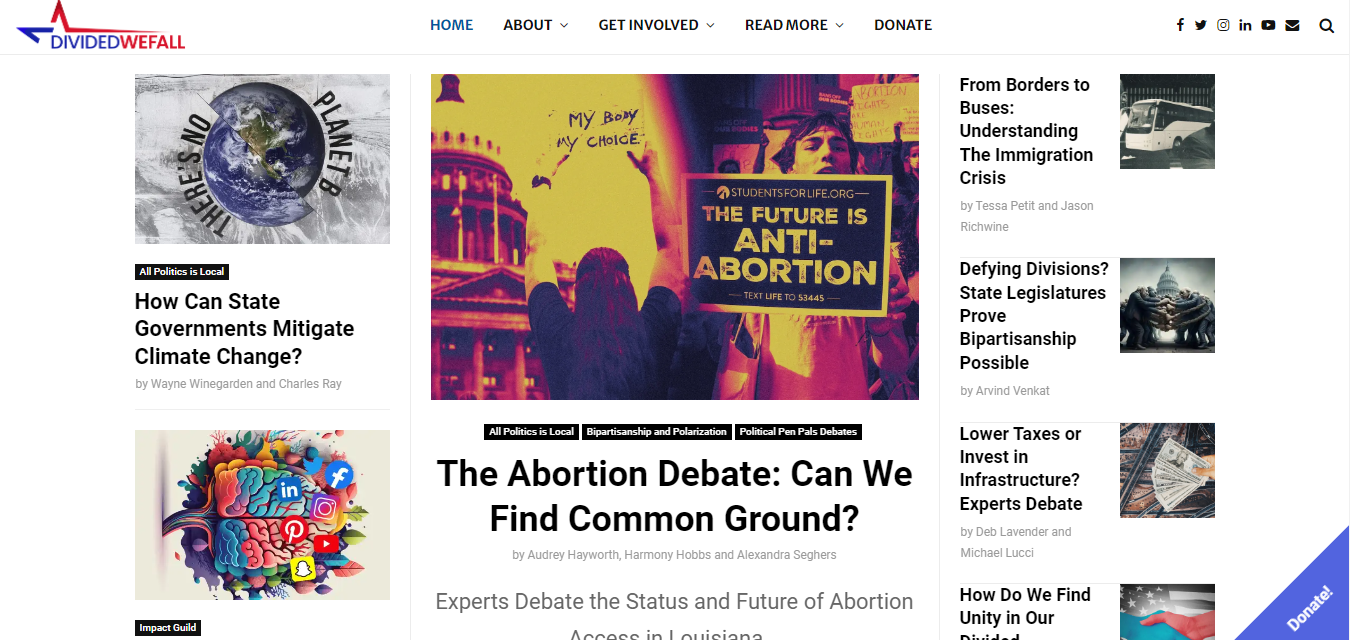Introduction:
In a world characterized by diversity, it is no surprise that differences in beliefs, opinions, and cultures can lead to division among people. However, the phrase “Divided We Fall” serves as a stark reminder of the importance of unity in times of crisis and beyond. This phrase has become a rallying call for humanity to come together, bridge gaps, and work towards a common goal, despite our differences. In this piece, we explore the concept of “Divided We Fall” and the ways in which unity can help us overcome challenges as a global community.
- Understanding Division:
Division can take many forms – political, religious, ethnic, socioeconomic, and more. It often stems from fear, lack of understanding, or the perpetuation of stereotypes and prejudices. When divisions persist, they hinder progress and cooperation. It is crucial to recognize that diversity itself is not the problem; rather, it is the inability to accept and respect those differences that lead to fractures within societies.
- The Consequences of Division:
History has shown that divided societies are more vulnerable to external threats and internal turmoil. Lack of unity weakens our collective strength, making it difficult to respond effectively to global challenges like climate change, pandemics, poverty, and terrorism. Moreover, division can lead to discrimination, violence, and the erosion of democratic values, threatening social cohesion and stability.
- The Power of Unity:
Unity does not require conformity, but rather a mutual respect for each other’s perspectives and an understanding that our shared humanity binds us together. When we set aside our differences and work collaboratively, we unlock the potential to achieve remarkable feats. United, we can tackle complex problems, innovate, and create a better world for future generations.
- Breaking Down Barriers:
To foster unity, we must address the barriers that keep us apart. This entails promoting empathy, communication, and education. By actively listening to each other’s experiences and narratives, we can bridge the empathy gap and build trust. Emphasizing education that promotes cultural understanding and critical thinking is vital in combatting prejudice and stereotypes.
- Building Global Alliances:
In an interconnected world, unity goes beyond national borders. International cooperation is essential to address issues that transcend boundaries, such as climate change, migration, and global health. By forming alliances and working together, countries can pool resources and expertise, leading to more effective solutions.
- Leaders’ Role in Fostering Unity:
Leaders play a pivotal role in shaping the narratives that define a society. They must prioritize dialogue, compromise, and inclusivity in their governance. Leaders who embrace diversity and create platforms for constructive discussions can inspire their citizens to do the same.
Emphasizing education that promotes cultural understanding is pivotal in fostering a harmonious global community. By integrating diverse perspectives into curriculum and encouraging open dialogue, students develop empathy and respect for all cultures. Such education dismantles stereotypes, fosters unity, and cultivates a more interconnected and compassionate world.
Conclusion:
“Divided We Fall” is a powerful reminder that unity is not just a lofty ideal but a necessity for human progress and survival. In a world facing numerous challenges, it is more crucial than ever to come together as a global community. By understanding, respecting, and valuing our differences, we can build a more inclusive, equitable, and harmonious world. Let us remember that our strength lies in unity, and together, we can overcome any obstacle that comes our way.


